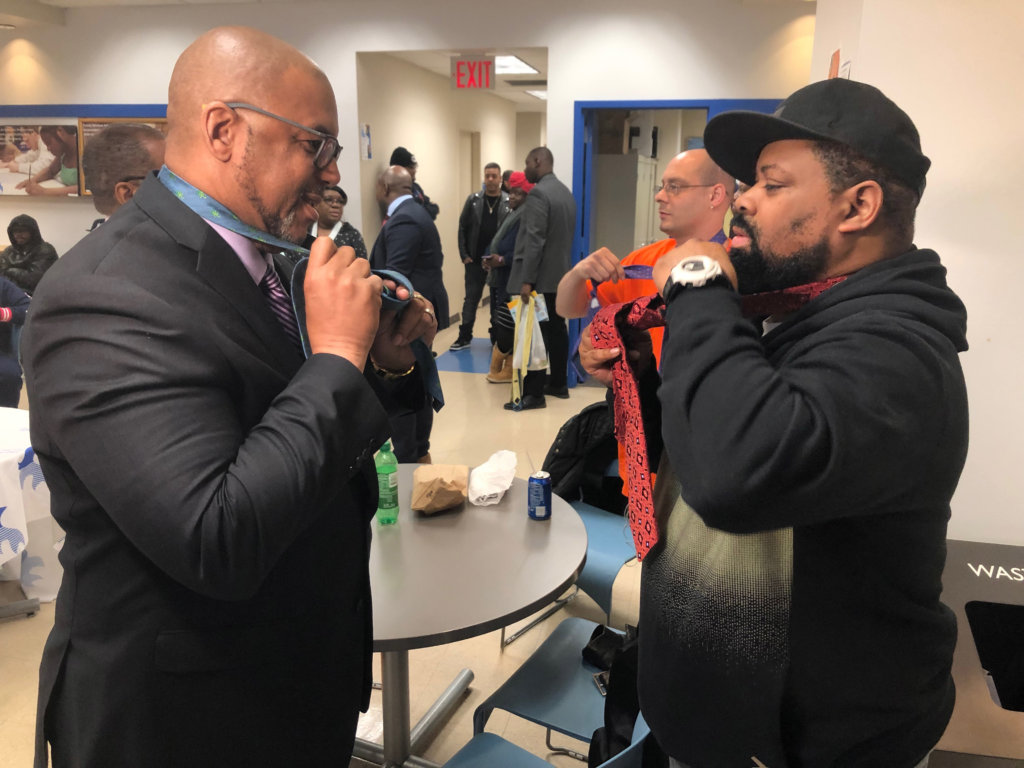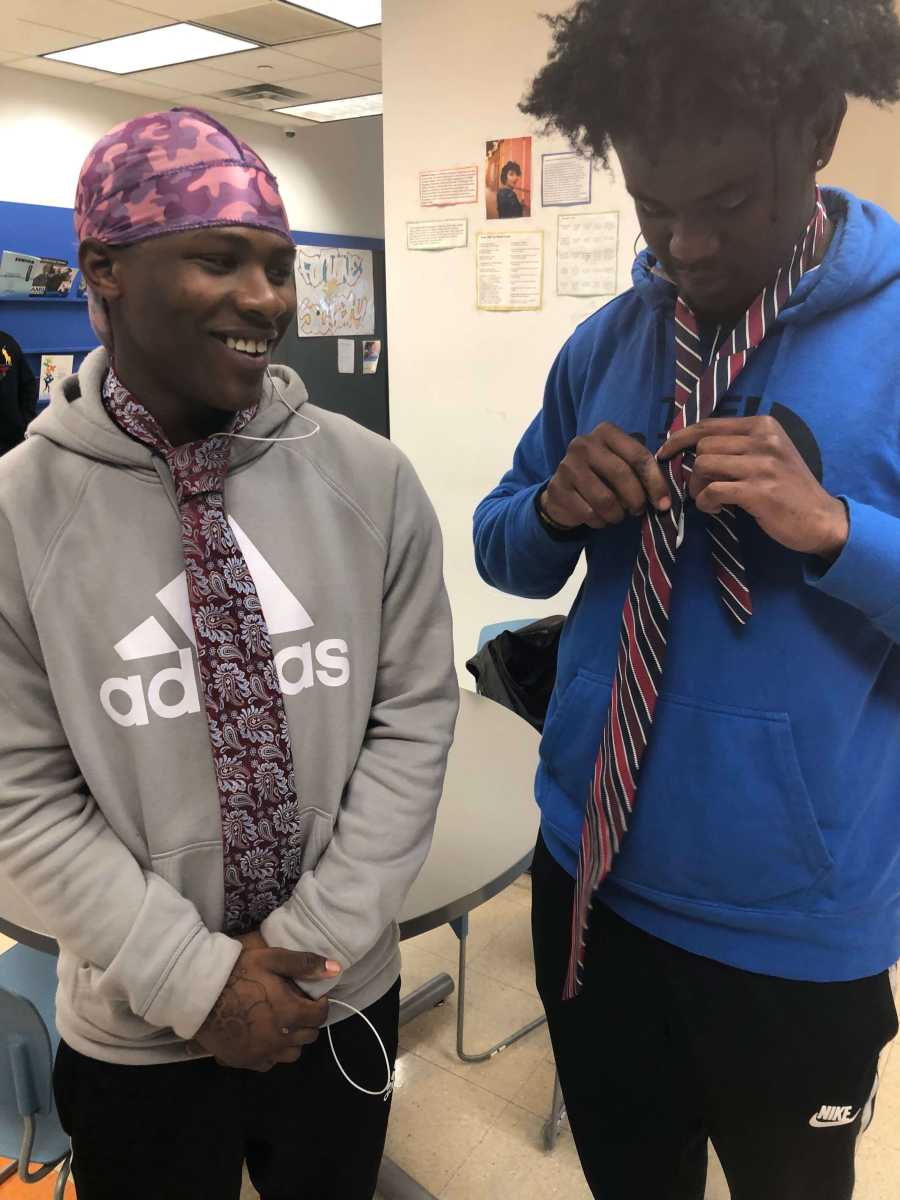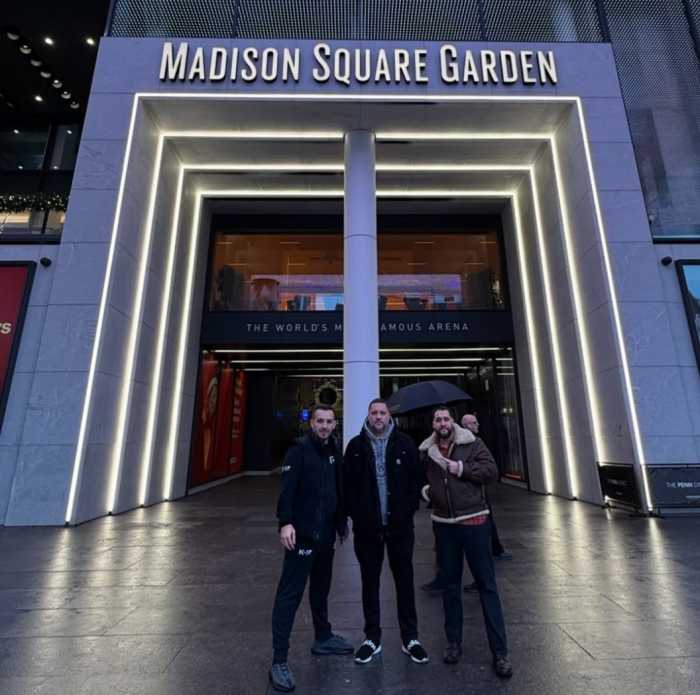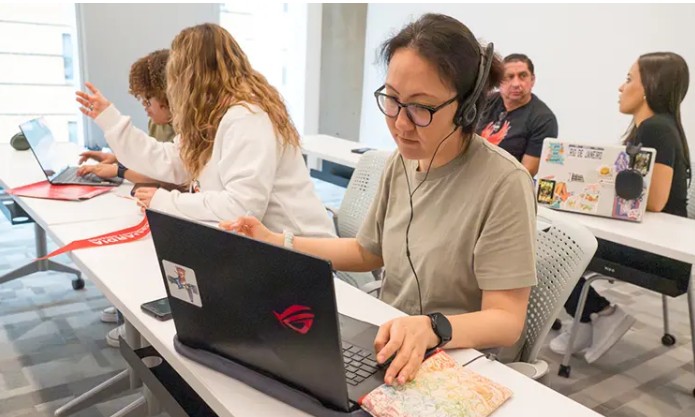For nearly 50 years, The Fortune Society in Queens has been paving the way for formerly incarcerated people to face the challenges and harmful stigmas that prevent them from successfully reentering society.
One of the barriers they face is finding sustainable employment, so the Long Island City-based nonprofit gathered more than 50 of them for a crash course on how to tie a necktie, a vital skill for finding jobs and becoming leaders in their community.
“Gaining employment is one of the most important steps of successful reentry,” The Fortune Society Vice President Andre Ward said. “That is why at The Fortune Society, we do our best to equip our clients with the skills and tools that they need to land a job, which includes, at the most basic level, learning how to tie a necktie.”
Windsors, bow ties, and four-in-hands were all on the agenda at the special workshop event for the organization’s clients who come home from prison without basic life skills that most people take for granted, Ward, who heads Fortune’s Education and Employment Services, explained. Other life skills that most people take for granted include using a computer or a smartphone.
“I can tell you what it meant for me when I came home from prison and tied my first tie,” The Fortune Society Executive Vice President Stanley Richards said. “It meant there was an acknowledgment of my humanity and my participation in society.”
Richards was honored at the White House as a Champion of Change in 2014 after his life’s journey began on the mean streets of the Bronx, where he “ran with a dangerous crowd” before he was convicted of armed robbery and sentenced to up to nine years in prison.
In prison, Richards began to salvage his life through education, earning a GED, and when he was released , after serving 4 ½ years, he went on to graduate from college. In 1991, Richards was hired by The Fortune Society as a counselor working his way up to executive.

Former U.S. Attorney General Eric Holder hosted the White House ceremony honoring Richards and 16 other American heroes that day and the East Elmhurst native pointed out that 95 percent of all incarcerated people will be released at some point.
“And just as we expect everyone who commits a crime to serve their time and pay their societal debts, we also expect them to remain sober and crime-free upon their release,” Holder said. “We expect them to get jobs and find housing and we expect them to become productive taxpayers and law-abiding members of society. Unfortunately, these expectations are not always met. Shockingly high recidivism rates persist across the country.”
Justice Department statistics at the time showed that nearly 68 percent of released prisoners return within three years and nearly 77 percent are back after five years.
“Everyone looks at those numbers,” Richards said after the ceremony. “Me, I look at the nearly 25 percent of the people that don’t go back to prison and we should focus on that element of success. Mass incarceration doesn’t build better communities or better families. Education builds better people to the tools they can use upon their release.”
Even something that most people take for granted, like tying a necktie.



































